Jan De Nul Group Picks MacArtney’s CEMAC Tensioners for CLV Fleet
MacArtney Offshore Wind Solutions has been hired by Jan de Nul to design and supply custom CEMAC tensioner systems for its entire cable laying vessel (CLV) fleet, which includes the world’s largest cable layer - the Fleeming Jenkin.
MacArtney's comprehensive scope involves designing, constructing, and delivering advanced tensioner systems for Jan De Nul Group’s CLV fleet, including the Connector, Willem de Vlamingh and the new Fleeming Jenkin.
The scope also encompasses upgrading tensioner systems previously delivered for the Isaac Newton CLV.
For the Fleeming Jenkin CLV, MacArtney will supply three high-capacity CEMAC four-track main deck tensioners designed to facilitate bundled lay operations with minimised cable distance and combined lay operations up to 150 tonnes, two CEMAC loading arm tensioners and associated fully electrical
The vessel will boast a cable carrying capacity of 28,000 tonnes and is engineered for ultra-deep laying in waters up to 3,000 meters, as well as bundled lay operations.
MacArtney’s electrically driven tensioners are said to ensure safe and controlled cable handling, with real-time monitoring of cable integrity. All equipment is fully integrated with the vessel’s central control system. The solution is future-proof and designed to handle Jan De Nul Group’s advanced export and interconnect cable installations.
"Being re-selected by Jan De Nul Group for the supply of mission equipment signifies a testament to our competencies. Our dedicated team of construction and automation engineers is motivated by the challenge of aligning with the vessel's dynamics and control system seamlessly.
“We are committed to ensuring that Jan De Nul Group keeps playing a leading role in pioneering the cable installation market with their advanced fleet,” said Mike Welling, the Business Development Manager at MacArtney Offshore Wind Solutions.
In line with the commitment to sustainable practices, all CEMAC tensioners provided by MacArtney will be driven by electric motors and feature active front-end drive technology. This innovative approach ensures efficient cable tension and facilitates energy regeneration, which is redirected back to the vessel's power plant, which includes batteries.
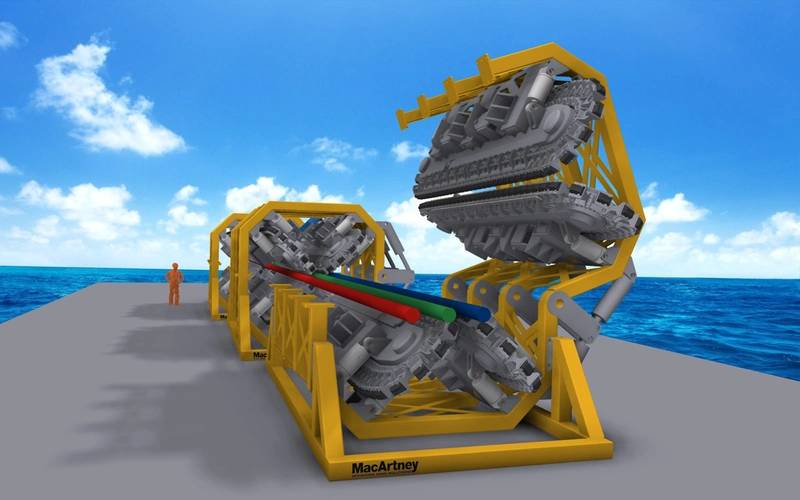 MacArtney CEMAC Tensioner System (Credit: MacArtney)
MacArtney CEMAC Tensioner System (Credit: MacArtney)

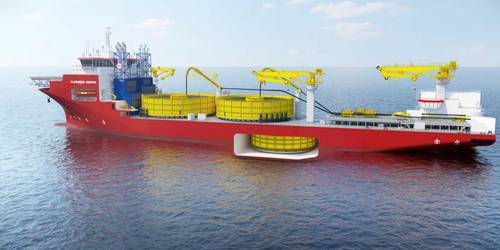
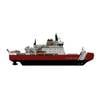
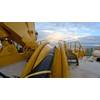
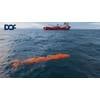
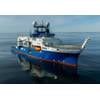
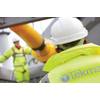
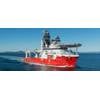







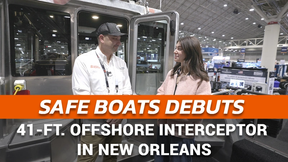
 December 2025
December 2025



